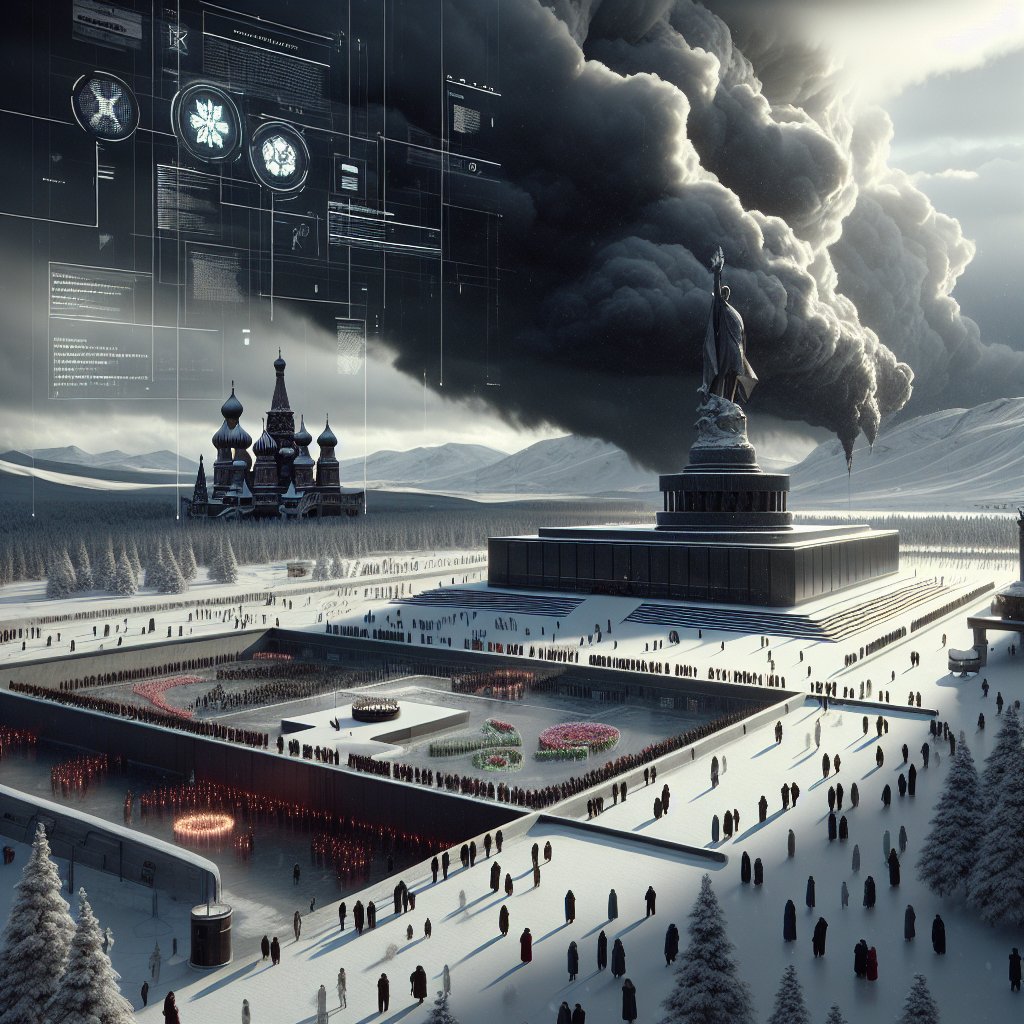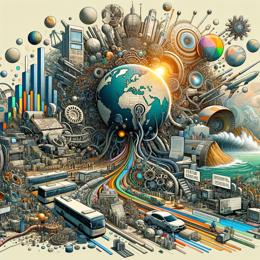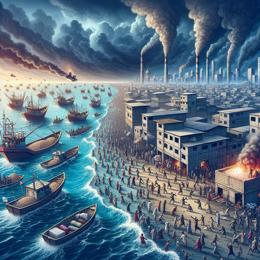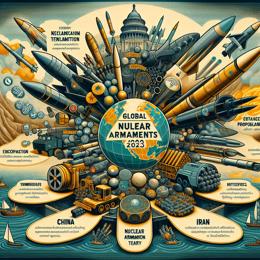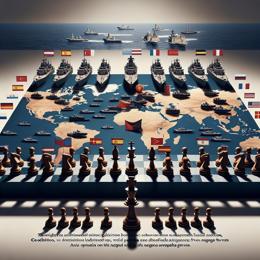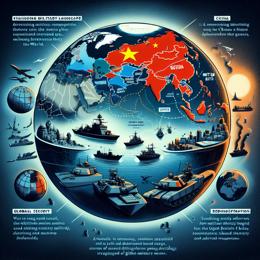Image created by AI
Mass Detentions Across Russia as Citizens Remember Alexey Navalny
The shadow of stringent state control and the attendant suppression loomed large over Russia this weekend as citizens across the nation found themselves at the crossroads of grief and authoritarianism. In an act of remembrance that was met with an iron-fisted response, more than 350 individuals were detained while attempting to honor Alexey Navalny, a figure who, even in death, continues to challenge the fabric of Russia's political establishment.
Navalny, a fierce critic of President Vladimir Putin and a symbol of resistance to many within and outside Russia, reportedly passed away at the "Polar Wolf" Arctic penal colony where he was serving an ostensibly politically motivated sentence. His death, which stirred a global reaction, has metaphorically placed a magnifying glass over Putin’s regime, critically short days before an election anticipated to extend Putin's tenure.
These acts of remembrance, spontaneous yet poignant, saw the convergence of citizens at various historic and symbolic sites. The monument to the victims of Soviet repression on Moscow's Lubyanka Square was one such focal point—a site swathed in flowers and candles swiftly cleared away under cover of darkness, leaving behind a landscape marred by its abrupt sanitization.
OVD-Info, known for its diligence in documenting political oppression in Russia, cataloged the detentions, which spanned from Saint Petersburg, where 74 individuals were reportedly taken, to 49 in Moscow, and many more in smaller cities emblematically significant to Russia's historical narrative of resistance.
The Kremlin has yet to officially comment on Navalny's death or the subsequent global condemnation, maintaining a stony silence even in the face of direct attribution of responsibility from figures like U.S. President Joe Biden and European Council President Charles Michel. Prior warnings against participation in such memorials, underscored by the removal of floral tributes to opposition leader Boris Nemtsov, echo the broader climate of suppression that continues to characterize Putin's stance on dissent.
The detentions and their accompanying imprints on digital platforms speak volumes about the state of freedom, or lack thereof, in today's Russia. Moving pictures of solitary flowers in the snow juxtaposed against the backdrop of police tape reinforce the narrative of a society held in check by a regime unwilling to brook dissent.
From the note resting beside Nemtsov's memorial to the poignant messages shared worldwide, the undercurrent of Navalny’s influence persists, transcending the man himself and representing a sentiment echoed by Australia’s Minister Penny Wong about the “heroic opposition to Putin’s repressive and unjust regime."
Navalny's impact, whilst not substantially altering the likely outcome of the upcoming presidential election, poses questions about the longevity of Putin's control and the potential future dynamics of Russia's interactions with the West. Navalny’s legacy, borne out through his last words and through the determination of his family and legal team, who are en route to where he spent his last moments, seems set to endure and foster dialogue, if not immediate change, about the nature of governance and freedom in Russia.
